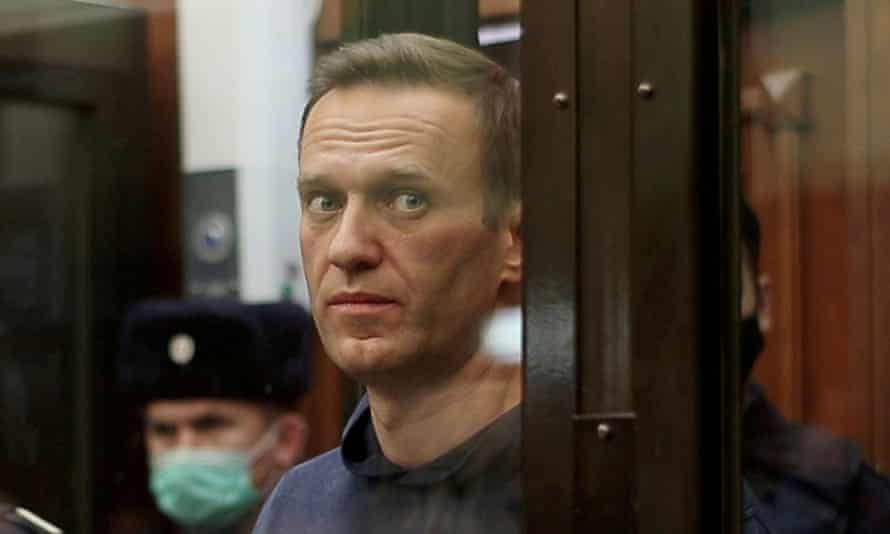Extract from The Guardian
Russian opposition leader says he has been denied medical care and subjected to sleep deprivation.

Alexei Navalny pictured in a Moscow court in February.
Last modified on Thu 1 Apr 2021 05.23 AEDT
Alexei Navalny has gone on hunger strike after saying he was denied urgent medical treatment in prison.
The Russian opposition leader has complained of a “sharp deterioration” in his health since his transfer to a prison colony in the Vladimir region to serve a two-and-a-half year sentence on embezzlement charges. The colony, which is 60 miles from Moscow, is notoriously strict and said to excel at isolating inmates from the outside world.
Navalny, who barely survived a poisoning attack in August traced back to Russia’s FSB, complained of “aggressively progressing” pain and numbness in his back and legs. “Parts of my right and now left leg have lost all feeling,” he wrote in a note, which has been reposted to his social media accounts.
“I’ve declared a hunger strike with the demand that the law be enforced and a doctor be admitted to see me,” Navalny wrote. “So for now I lie hungry, but for the time being with two legs.”
Navalny says has not received medicine he has requested and the prison administration has subjected him to psychological pressure and sleep deprivation, detailing a fellow inmate to wake him every hour on the pretext of making sure he has not escaped.
Inmates often go on hunger strikes or commit other acts of self-harm in order to protest over poor conditions in Russian prisons. Some declare “dry” hunger strikes in which they also refuse water.
Navalny did not specify which kind of hunger strike he had declared but has said it will continue until prison authorities allow him to see a doctor. “My requests are modest, obvious, and the right to medical care and an examination by a doctor … is written in black and while in the law. But for some reason the law doesn’t apply to me.”
It is not clear whether Navalny’s condition is tied to the poisoning attempt last year, which left him in a coma. He was evacuated to Berlin’s Charité hospital, where he was diagnosed with poisoning from a novichok-style nerve agent similar to the one used in the Salisbury attacks in 2018.
Navalny said that upon reawakening, he had to learn to perform simple tasks and struggled with persistent exhaustion. Nonetheless, he returned to Russia just months later, flying to Moscow’s Vnukovo airport. He was arrested for allegedly violating his parole in a 2014 embezzlement case he has said was politically motivated and sentenced to two-and-a-half years in prison. Navalny has accused Vladimir Putin of personally ordering his attempted murder and his imprisonment. The Kremlin has denied the accusations.
No comments:
Post a Comment